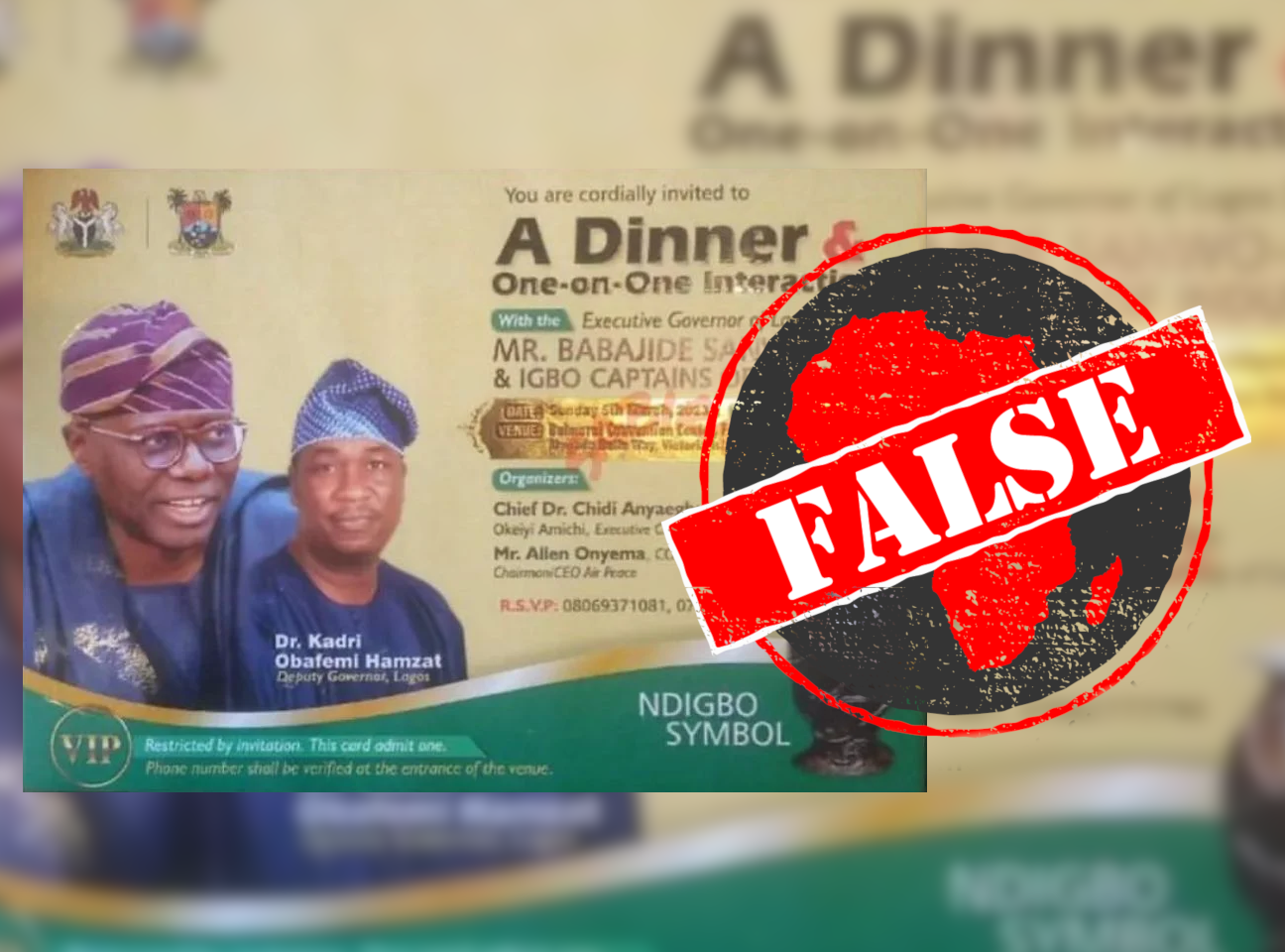IN SHORT: Politicians in Nigeria might still be scrambling to win votes ahead of the 11 March elections for governor, but there’s no evidence the governor of Lagos state is holding special dinners for “Igbo captains of industry” to curry favour.
What looks like an invitation from Lagos state governor Babajide Sanwo-Olu to “a dinner” and “one-on-one interaction” has been shared on Facebook and WhatsApp in Nigeria. It is addressed to “Igbo captains of industry”.
One of the Facebook posts reads: “With the growing fear he could lose his Governorship seat to LP's GRV, Gov. Sanwo-Olu is set to meet with Igbo captains of Industry in Lagos”.
Gbadebo Rhodes-Vivour, or GRV, is the Labour Party candidate for governor of Lagos in the 11 March 2023 elections.
In Nigeria’s 25 February presidential elections, Bola Tinubu, the presidential candidate of the ruling All Progressives Congress (APC) lost Lagos state, his historical stronghold, to Peter Obi, the Labour Party candidate.
Obi received 575,735 votes to defeat his rival Tinubu, who had 573,001 votes. Tinubu was declared the winner of the presidential election on 1 March.
The post suggests Sanwo-Olu, who is from the same party as Tinubu, could lose to the candidate of the Labour Party on 11 March. The dinner would be to curry favour with Igbo people in the state.
The same claim appeared on Facebook here, here and here.
But is the invite legit? We checked.

‘Fake news’ says governor’s assistant
Jubril Gawat, Sanwo-Olu’s senior special assistant, debunked the claim in a tweet on 27 February 2023. He shared a version of the invitation stamped “Fake News” in red and tweeted “FAKE NEWS”.
We also checked the verified Twitter handle of the governor and didn’t find any evidence of the invitation or such a dinner.
We then searched through the Lagos state government website and Twitter handle and also found no results.
Republish our content for free
For publishers: what to do if your post is rated false
A fact-checker has rated your Facebook or Instagram post as “false”, “altered”, “partly false” or “missing context”. This could have serious consequences. What do you do?
Click on our guide for the steps you should follow.
Publishers guideAfrica Check teams up with Facebook
Africa Check is a partner in Meta's third-party fact-checking programme to help stop the spread of false information on social media.
The content we rate as “false” will be downgraded on Facebook and Instagram. This means fewer people will see it.
You can also help identify false information on Facebook. This guide explains how.


Add new comment